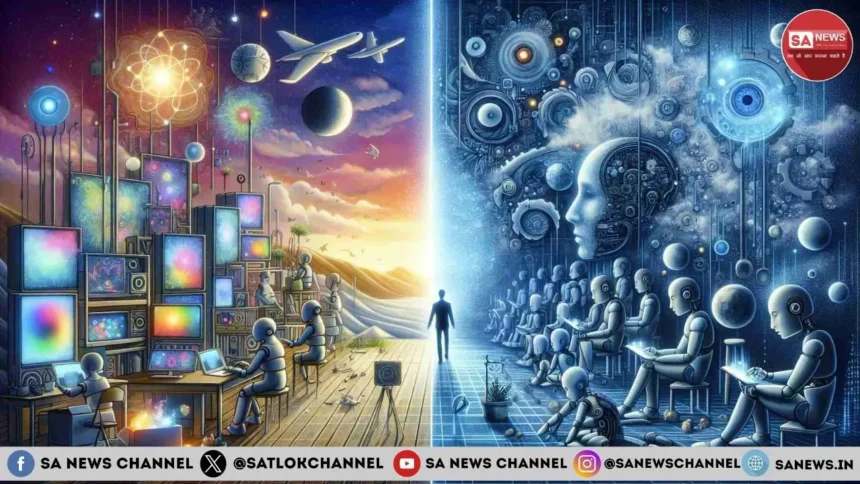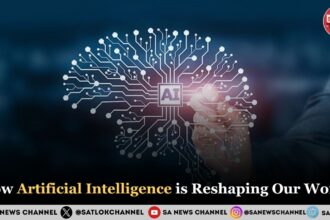With the recent development in the capabilities of Gen AI, the role of AI in creative industries have increased drastically. For the last few centuries, machines or tools were used mainly for repetitive and non-creative tasks. The common perception for us humans was that machines would not be able to do creative work. But with the advent of Gen AI and expansion of its capabilities, the role of AI in creative industries has become very important. Let’s explore its impact and its future.
Democratisation of Creativity
Writing an article, a book or a poem, generating images, clicking photographs or even making videos to a movie or even creating melodies – all of these were only done by humans, but now, AI can do all the above tasks very well. This has lowered the barriers of entry into creative fields, enabling aspiring artists to create high quality, professional looking content without years of experience or training.
This democratisation allows more people to express their ideas and thoughts with the desired quality. A lot more ideas and thoughts can now be published on the web with lower cost. This however has a flipside – reduction of the value of human creativity. It also reduces the uniqueness and creates a problem of homogeneity.
Impact on Job Markets
For professional and aspiring professionals, AI tools have now become indispensable. Writers use AI tools for research and editing, designers use them to create multiple different types of concepts, musicians use AI to create elements that can be used in their compositions, movie makers and animators have also started using AI tools very actively for voice overs, video generation and animation elements.
This is increasing the productivity of the industry and there is a fear that it could impact entry-level roles drastically. Senior professionals can now do a lot more work without needing large teams to help them. There is also another side to it which argues that AI will enable a shift of work focus to more conceptualization and curation.
Copyright and Authenticity Issues
Major issue with AI based creative content is copyright and authenticity. One particular style of music is generated by AI, who would own that music? How would the attribution happen in this case, in which the company that runs the AI model is the owner or is it the creator or is it the original data owners on which the AI model was trained?
The Future
There is no doubt that AI is impacting the creative industry like never before. The way the industry works is changing rapidly and only the ones who adapt quickly will survive and thrive.









